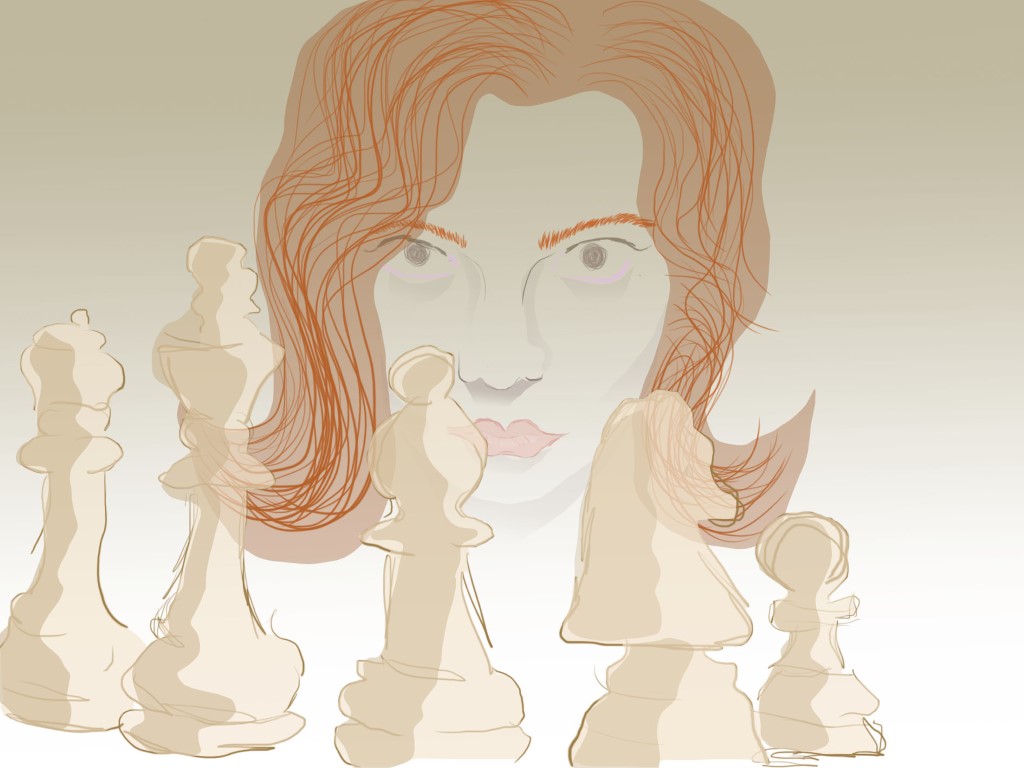
‘The Queen’s Gambit’ Netflix show review
By Sonam Kaloti, Arts Editor
4.5/5
Even as a child, she beat the entire team…while playing everyone at the same time.
It was a casual fall day when one of my best friends sent me an iMessage that would change everything. A game of chess via GamePigeon, and with it, plenty of future turmoil. When met with my confused reply, “I don’t even know how to play chess,” this friend went on a long tangent explaining the rules of the game and potential strategies (as well as what the pieces were called, which I definitely would not remember). One thing led to another and suddenly I’m watching the Netflix historic drama miniseries, The Queen’s Gambit, directed by Scott Frank. There are spoilers ahead!
The star of the show is the lead character Beth Harmon, played by Anya Taylor-Joy. With just the slightest movements and near-blank facial expressions, Taylor-Joy presents an array of emotion for the audience to fully feel how she feels. She carries the weight of the character’s less-than-ideal life situation. It is similar to that of Millie Bobby-Brown’s “Eleven”—with their acting, less is more. Oftentimes the darkest situations see Beth—and only see her. No speech is necessary to watch the days and tragic events unfold and burden the heart-crushing realities that the character faces. Yet, the emotional weight of the show never becomes too much, nor too much of a focal point. The realities are laid bare as just those—tragic realities. The show stays consistent and concise, focused on chess throughout all seven episodes.
We watch Beth Harmon grow up from being a child to a worldwide chess champion, though not without her fair share of terrible tragedies, and even bad decisions made on her part. Having lost her mom, and her dad not being in her life, Beth—orphaned and alone—begins to play chess with the orphanage’s janitor in the basement. Quickly becoming an exemplary player, the janitor seeks out a local high school team for Beth to play and compete against to see where she stood in skill. Of course, even as a child, she beat the entire team…while playing everyone at the same time. Thus, Beth would grow to become a huge name in the game.
The show employs an inception-like gimmick; while we’re already in flashbacks of Beth’s life watching her grow, inside these flashbacks we get further flashbacks detailing accounts of her early childhood and family troubles. From watching her parents’ marriage collapse, her father rejecting the family, to her mother eventually purposefully driving into a collision, Beth suffered too much loss at a very important developmental period of her life. Though, early clues suggest Beth may have inherited a sharp mind, such as the cover of a book that her mother went to burn in a fire which read that her mother, Alice, had authored the mathematics book and had a Ph.D.
Any show that can take a skill, art, or sport and make an audience excited about it is phenomenal, as getting someone excited about something they do not understand is an enormous feat already. The Queen’s Gambit does just that. The art of chess seemed absent lately (proven by my own lack of knowledge) so this show came just in time.


